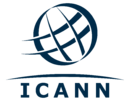Main Page: Difference between revisions
No edit summary |
No edit summary |
||
| Line 21: | Line 21: | ||
<br /><div style="color: #FFF; background-color: #0d8323; padding: 5px 10px; border: 1px solid #466f81;"><big>Article of the Week</big></div><div style="padding: 10px;"> | <br /><div style="color: #FFF; background-color: #0d8323; padding: 5px 10px; border: 1px solid #466f81;"><big>Article of the Week</big></div><div style="padding: 10px;"> | ||
<big><b>[[ | <big><b>[[Internationalized Domain Name]]</b></big> | ||
<br /> | <br /> | ||
[[ | An [[Internationalized Domain Name]] (IDN) is an Internet [[Domain Name]] that uses the latest [[ICANN]] protocols and standards to support domain names written in multiple scripts and languages (non-ASCII characters). They allow users to navigate the Internet without using English, which was long considered the default Internet language despite the Internet's growing base of international users. The first IDNs were implemented into the [[Root Zone]] in April, 2010; it is estimated that 60% of users now access the Internet in their native, non-English language. IDN can also be perceived as the label displayed in a software application, in an alphabet or language-specific script. IDNs are stored in the DNS as ASCII strings. | ||
<br /><br /> | <br /><br /> | ||
<strong>([[ | <strong>([[IDN|Read the full article...]])</strong> | ||
<div style="float:right;"><small><strong>Related: [[ | <div style="float:right;"><small><strong>Related: [[DNS]] - [[Root Zone]] - [[Domain Name]]</strong></small></div><div style="clear: left;"></div></div> | ||
<br /><div style="color: #FFF; background-color: #466f81; padding: 5px 10px; border: 1px solid #0d8323;"><big>Latest Feature</big></div><div style="padding: 10px;"> | <br /><div style="color: #FFF; background-color: #466f81; padding: 5px 10px; border: 1px solid #0d8323;"><big>Latest Feature</big></div><div style="padding: 10px;"> | ||
Revision as of 19:18, 3 March 2014
ICANNWiki Info Sheet
Many thanks to our sponsors for all of their continued support!
Internationalized Domain Name
An Internationalized Domain Name (IDN) is an Internet Domain Name that uses the latest ICANN protocols and standards to support domain names written in multiple scripts and languages (non-ASCII characters). They allow users to navigate the Internet without using English, which was long considered the default Internet language despite the Internet's growing base of international users. The first IDNs were implemented into the Root Zone in April, 2010; it is estimated that 60% of users now access the Internet in their native, non-English language. IDN can also be perceived as the label displayed in a software application, in an alphabet or language-specific script. IDNs are stored in the DNS as ASCII strings.
(Read the full article...)
Name Collision
A Name Collision describes the circumstance in which a term attempting to reach a private Domain Name results in resolving to a public Domain Name unintentionally. Private domain names are used in Intranets and in many corporations and organizations throughout the world. A domain name on a private network that matches a name in the public Internet can create security risks, confusion, and systems failure. Although the Name Collision issue is not new, a renewed interest in the issue came about in 2013 as ICANN's New gTLD Program was preparing to delegate hundreds of new domain names to the Root Zone. The topic was debated fiercely within the ICANN community when a report by Interisle Consulting was prepared for and released by ICANN.
(Read the full article...)
- gTLD Auctions
- Closed gTLDs
- Sort All TLDs by Priority
- 了解ICANN 和 新gTLDs计划
(Chinese micro-site)








